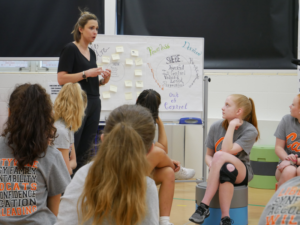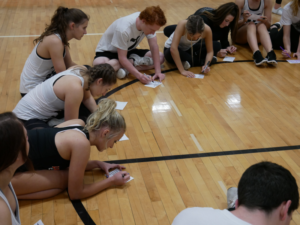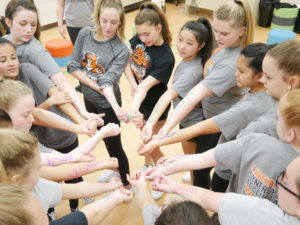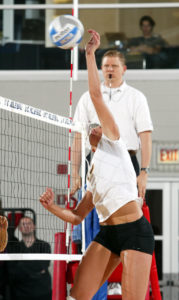by Audrey Grunst of Simply Bee Counseling, special to SportsMD.com

This recent uncertainty has increased anxiety for many young players. Athletes no longer have the schedule or routine that once made them productive. Without the usual consistency in their schedule, many athletes wake up to face an unstructured day.
Because many athletes are unfamiliar with this unplanned lack of direction, they tend to find solace in video games, Netflix, TikTok or YouTube videos. Minutes, hours and days begin to blend together without the organization and routine of school and sports. This can often lead to unrecognized depression and anxiety.

The typical structure of an athlete’s day—whether they play sports in middle school, high school or college—runs on a tight schedule that always keeps them driving forward and ready for the next thing. Athletes are trained to work at a rapid pace and with high efficiency so they don’t fall behind.
It should come as no surprise that with this virus-related shutdown many athletes, trained as competitors, feel as if their world flipped upside down and they don’t know how to cope. They are lacking the critical skills to get through these uncertain times.

I have identified creating a growth mindset as one of the critical ways to combat the tendency toward the “doom and gloom” an injured athlete, or one house-bound by the Corona virus, might be experiencing.
How to Adopt a Growth Mindset
1. Stay open to new opportunities. A growth mindset is a person’s ability to see difficult times as an opportunity to learn. Now that sports seasons are put on hold, it gives an athlete an opportunity to train differently than they have before. Using free time to try out new forms of exercise can create joy and a sense of playfulness that is sometimes lost when an athlete specializes in one sport.

2. Adopt a Beginner’s Mind An athlete can discover new forms of exercise by using a beginner’s mind, which is the ability to appreciate the excitement of a new physical activity with curiosity and a lighthearted manner. A beginner’s mind is quintessential to a growth mindset because it trains an athlete to explore new ways to think, act and move freely without fixating on what isn’t perfect or “right.” Ultimately, the beginner’s mind will transfer into confidence when the players return to their season and are able to push outside of their comfort zone.
3. Focus on “What Is” not the “What Ifs” The next time an athlete begins to worry about the future, label the worries as “what ifs” and in turn, ask them, “what is?” Feelings of depression and anger present themselves when an athlete is remembering the past and taking their attention away from the moment. Anxiety and worry remove the athlete from the present moment and cause them to live in the future; in both scenarios the athlete is focusing on what is out of their control which can make them feel disoriented, worried, angry, sad or scared. A simple question, “what is” in your control right now or “what is” happening in this moment can bounce the athlete right back into their present moment.

These trying times can cause athletes, parents, coaches and communities to focus on what COVID-19 has taken away from them, but there is a big opportunity to learn what COVID-19 has given as well. By working hard to adopt a Growth Mindset, there is great opportunity to learn how to persevere and grow during some of life’s most difficult situations.
A licensed clinical therapist and sports performance coach in Chicago, Audrey Grunst of Simply Bee Counseling, created an interactive e-book that provides a guide for athletes going through these challenging times. “4 Ways To Cope When The Game Is Done” is a free online resource that offers advice on how to train an athlete’s brain to strengthen their mental muscles, even when they can’t be on the field or court.

